

The regions Trinity College School offers busing from are:
How we see Trinity College School
The 50-page review of Trinity College School is part of our series of in-depth accounts of Canada's leading private schools. It provides a unique and objective perspective on the school's academics, programs, culture, and community.
Read our in-depth reviewCompare with:
How Trinity College School sees itself
"At TCS, our 100-acre campus and state-of-the-art facilities provide enriching spaces for our students to realize all that's possible. Students can discover new areas for growth and focus on personal interests across our connective academics, arts, athletics and service learning programs. Students in our care are surrounded by dedicated teachers, advisors, coaches and house staff to provide the right amount of challenge and encouragement along the way."
"At TCS, each student is valued for what they uniquely bring to the community because individuality matters here. Our students are surrounded by people who only want the best for them. We support them to find their personal path so that they are ready to realize their potential. Graduates develop that rare confidence that comes from knowing that they have been deeply understood and they start what's next truly valuing themselves as well as others."
"Students can get a fresh start and go as deep as they want, exploring, discovering, and focusing, with abundant options. Our variety of electives and co-curriculars offer students opportunities to try something new and go deeper with what they may already love. Faculty works with each student, with the right amount of challenge and encouragement to foster a high level of independence. Each student is valued for what they uniquely bring to the community because individuality matters here."
"People see our buildings, they feel the community when they come onto campus. What they maybe don’t see, at least at first, is the work our faculty works with each student, using the right amount of challenge and encouragement to help each student realize what’s possible because at TCS students achieve great things when they feel supported."
"At TCS, an excellent education means students remain open to learning throughout life and doing something positive with what they have learned. Our students realize their "why" as we nurture and further develop their good character."









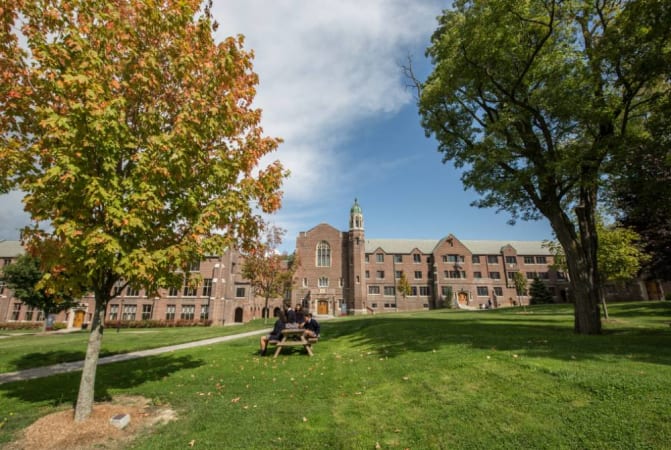
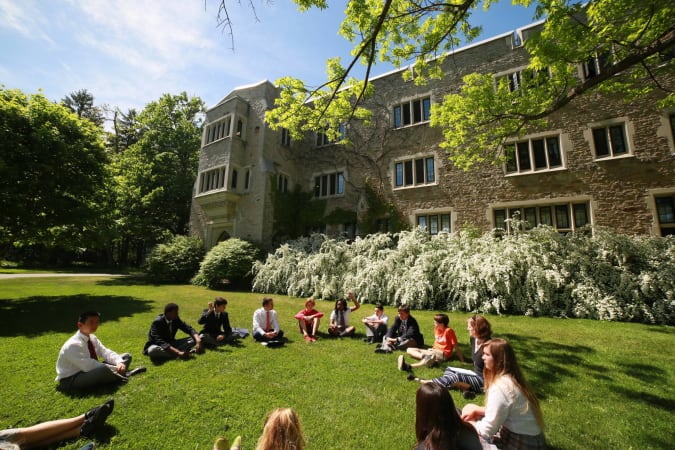




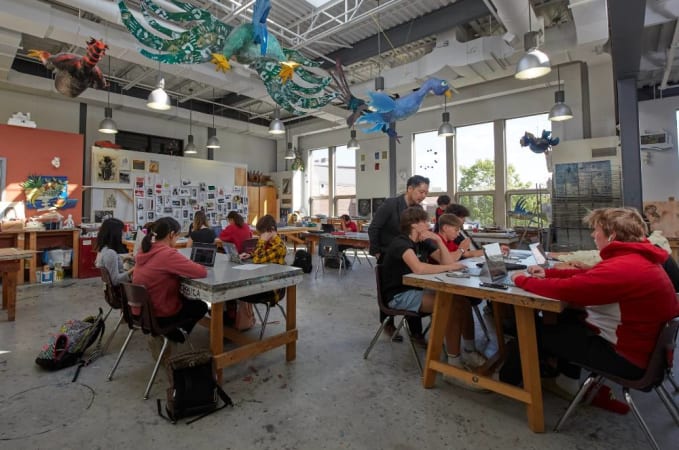
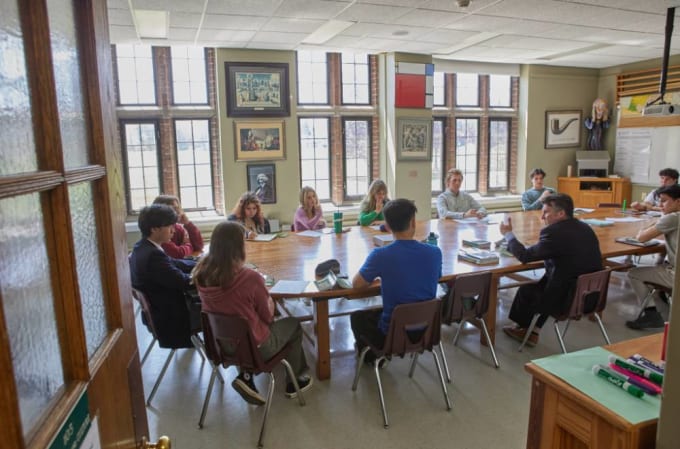




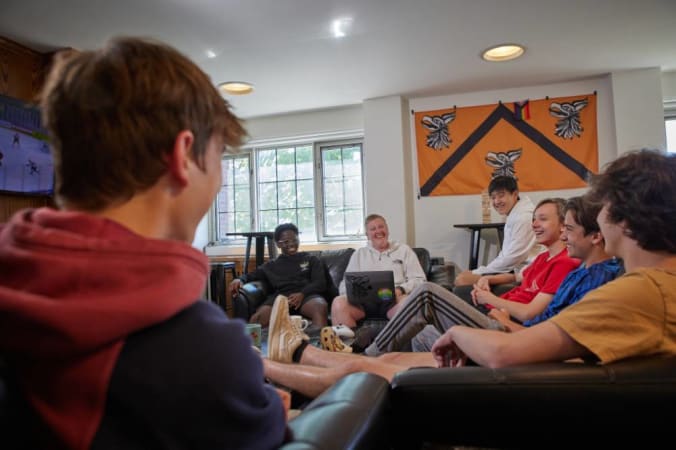










How people from the school’s community see Trinity College School
Top-down influence on the school’s direction and tone
Stuart K. C. Grainger, Headmaster
MBA, MEd, BEd
For more than 140 years, Trinity College School (TCS) has been internationally recognized for excellence in educating young people. It is no surprise that our challenging and encouraging environment has helped TCS graduates gain entrance to top universities around the world, and that our alumni are leaders in their communities. But this is just half the story.
TCS has always been keenly involved in character development, as reflected in our mission, “developing habits of the heart and mind for a life of purpose and service.” Given the challenges facing our planet today, we know our students will be called upon to lead their communities, their colleagues, their cause and, in some cases, their countries. If we are to best prepare our students to meet these challenges, we must inspire them to become leaders of character, purpose and vision.
At TCS we think that the quality of character determines the quality of leader. As such, we challenge our students to establish worthy goals and to act to good purpose. We cultivate integrity in our students. We encourage honest and constructive conduct. And, on the strength of our people, our programme and our place, we help to develop leaders who are broad-minded, intelligent, thoughtful and confident.
If you are considering Trinity College School as a destination, I trust that this Web site will provide you with many of the details you desire.
However, in order to truly experience the strong, supportive community that is TCS, I would like to extend an open invitation to visit us in person. I can promise you that the caring and energizing environment that we foster and enjoy will prove unique from any other school you may have visited.
I very much look forward to welcoming you to campus.
Sincerely,
Stuart K.C. Grainger
Headmaster
THE OUR KIDS REPORT: Trinity College School
Next steps to continue your research:
Continue researching Trinity College School with OurKids.net, or visit school website.
